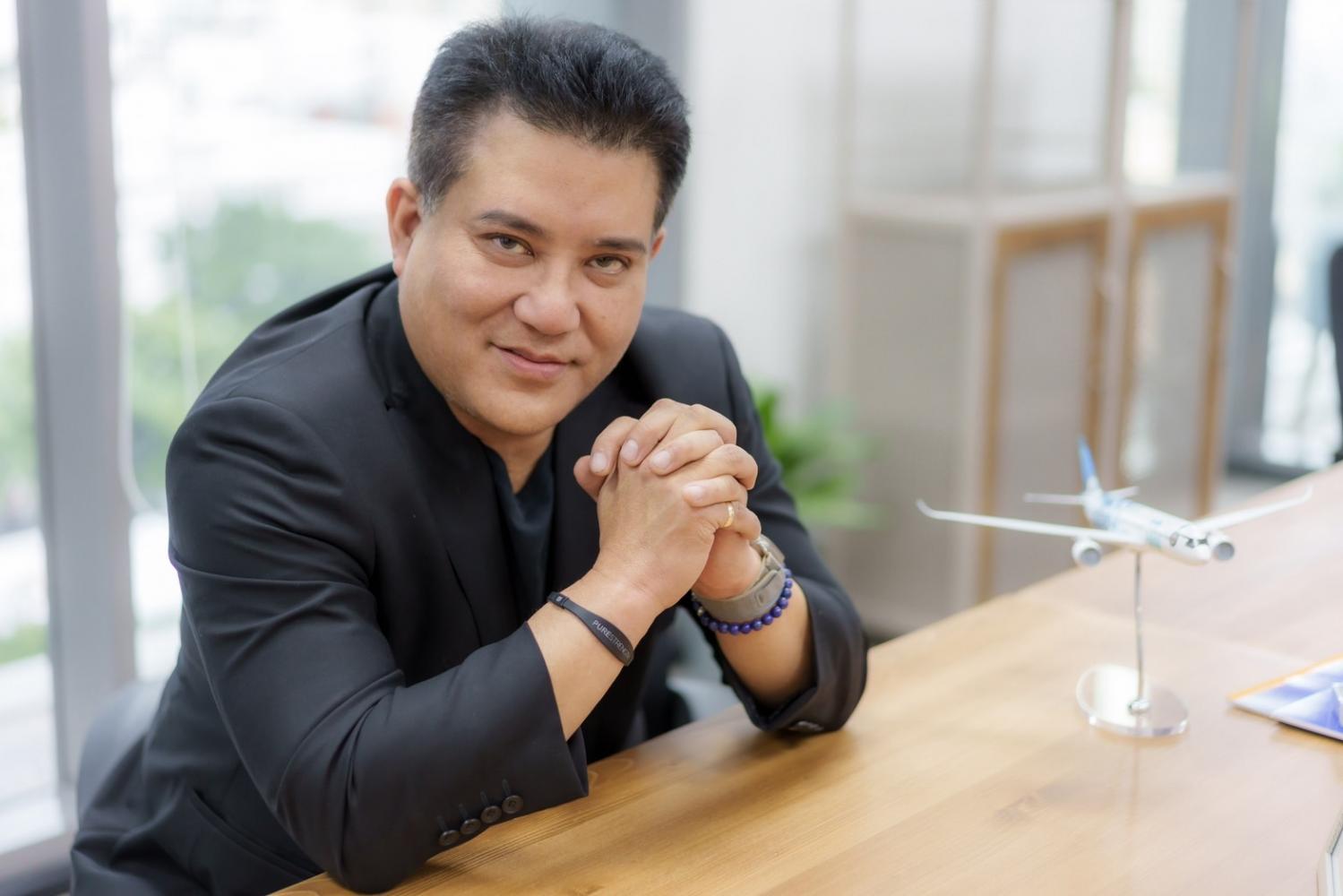
Really Cool Airlines wants to diversify risks by securing non-air ticket revenue of at least 40% of total revenue, while it searches for long-term fundraising via an initial public offering (IPO) in an overseas stock market.
Patee Sarasin, chief executive of Really Cool Airlines, said the airline has already secured an investment budget of 1 billion baht for operations with four leased aircraft in 2023, starting with two wide-body Airbus A330-300s in the first half and two A350s by the end of the year.
He said that since the airline plans to expand globally by operating long-haul flights from 2025, it has a long-term target of raising funds through an overseas stock market, which could take less time to initiate an IPO -- roughly 18 months in duration compared with the three consecutive years of profit required in order to list in Thailand.
The aviation industry learned some hard lessons during the pandemic, one of the biggest being that depending solely on flight ticket sales could have a severe impact. Really Cool Airlines plans to increase non-air ticket revenue to at least 40% and ramp it up to a 50:50 split over the long term to maintain a steady financial status in case any incidents occur that might interrupt the aviation industry in the future.
In addition to cargo services, which are expected to contribute 15% of total revenue, the airline wants to be the first in the world to offer a door-to-door luggage delivery service. This add-on service would pick up luggage from a residence or hotel, carry it through the check-in process, and delivers it to the accommodation at the destination.
The airline will start offering this service on direct flights between Bangkok and Tokyo (Narita), which have been planned to get underway in the second half of 2024.
It will also partner with other tech companies to offer innovative on-board and on-ground services, such as high-speed WiFi aboard aircraft and the transport used to connect passengers between the airport and their destinations, as well as partnering with SCB X to use fintech with its services.

Mr Patee:
Mr Patee said roughly 20-30% of its operations will be run with artificial intelligence (AI) technology to help streamline costs and offer seamless services to passengers, such as using predictive AI for fuel hedging and AI assistance for passengers.
He said robust tourism demand in Asia and the significant number of people in Europe who are looking for direct flights to Thailand will help accelerate the growth of Really Cool Airlines as it will become only the second airline from this country, after Thai Airways International, to fly directly to Europe, but with airfares up to 10-12% cheaper than the national flag carrier.
Mr Patee said the airline is expected to gain operational profit within its first full year of operations in 2025.
"We're not here to compete with Thai Airways, but we aim to complement the market with more choice on long-haul routes, which remain a blue ocean in Thailand, particularly when more passengers want to skip connecting flights due to geopolitical concerns and are looking for a more direct service," said Mr Patee.
He said Really Cool Airlines will partner with local airlines to offer codeshare flights connecting international routes with domestic routes that will help increase the number of tourist arrivals in the country.
Really Cool Airlines obtained an air operating licence in July from the Civil Aviation Authority of Thailand (CAAT) and is expected to secure an air operator's certificate from CAAT in January next year, which is required before it starts selling tickets.
The airline will begin routes providing charter services between March and May next year, then develop a full service schedule in the second half. Destinations under consideration include Tokyo, Hong Kong, Singapore, Shanghai, and Tbilisi, Georgia.
